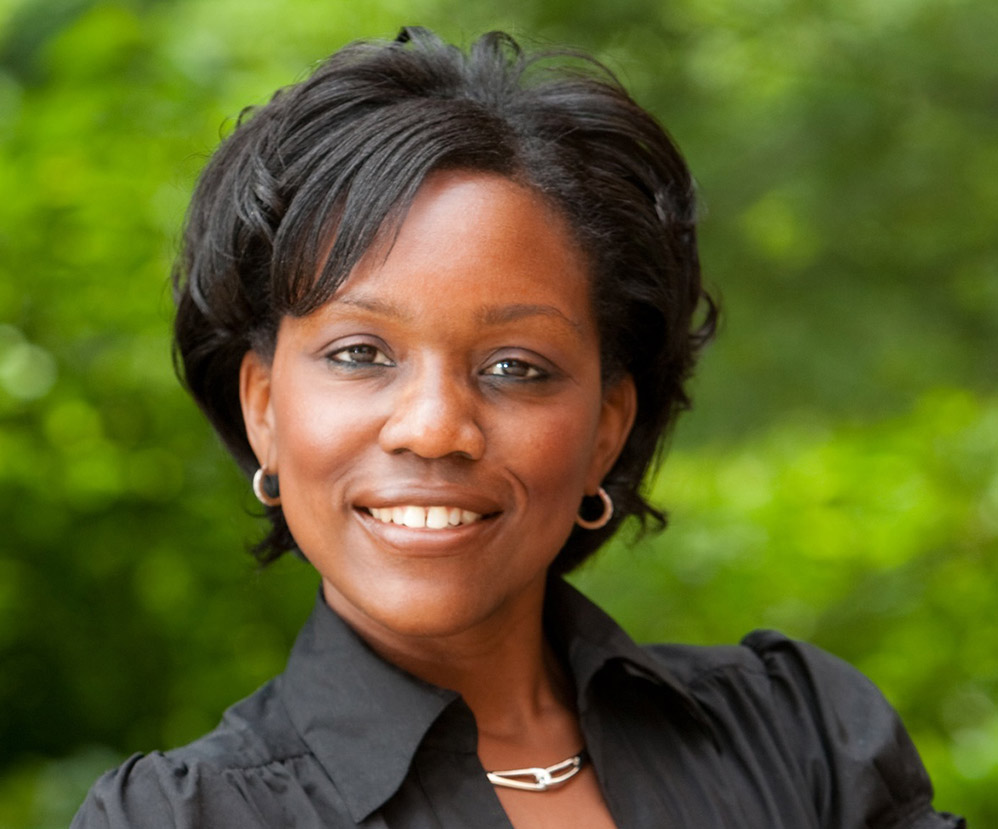Symposium on Biomathematics and Ecology Features Moody Lecturer
September 22, 2014
In an effort to change the face of cancer research, Trachette L. Jackson has built her career on collaborative study and educational activities that cut across traditional disciplinary boundaries.
She combines mathematical modeling, numerical simulation and in vivo tumor vascularization experimentation to gain a deeper understanding of tumor growth and vascular structure at the molecular, cellular and tissue levels. Jackson, a professor of mathematics at the University of Michigan, will describe some of her award-winning research during the 2014 Michael E. Moody Lecture, “Mathematical Models of Tumor Angiogenesis,” on Friday, Oct. 10 at 7 p.m., in the R. Michael Shanahan Center for Teaching and Learning Auditorium at Harvey Mudd College. The Moody Lecture is free and open to the public.
Cancer is the collective name given to an entire class of diseases characterized by rapid, uncontrolled cell growth. In order to acquire a continuous supply of nutrients and the ability to export metabolic waste, tumors recruit new blood vessels from the nearby existing vasculature. This process—known as tumor-induced angiogenesis—is critical to cancer progression as it provides the necessary blood supply for the growth of solid tumors. The angiogenic cascade is an extremely complex, yet well-ordered series of events involving biochemical and biomechanical signals. Jackson, an award-winning teacher-scholar whose research in mathematical oncology has received international attention, will explore the classical and current mathematical models of tumor angiogenesis and highlight recent advances.
In 2003, Jackson became the second African-American woman to receive the prestigious Alfred P. Sloan Research Award in Mathematics; in 2005 she received a James S. McDonnell 21st Century Scientist Award; in 2008 Diverse magazine honored her as one of the year’s Emerging Scholars; and in 2010 she received the Blackwell-Tapia Prize. She earned her PhD in applied mathematics in 1998 from the University of Washington.
Jackson’s talk is part of the International Symposium on Biomathematics and Ecology: Education and Research (BEER), being held Oct. 10-12 and hosted by Harvey Mudd College and Pomona College. The symposium brings together researchers and educators to share their progress in biomathematics research and to discuss the current state of biomathematics education. The event attracts scientists from diverse fields—such as biology, ecology, statistics and biostatistics—providing opportunities for true multidisciplinary collaborations that support advancements in both research and education.
“BEER has a history of promoting rich interactions and collaborations that continue outside of the conference,” said Lisette de Pillis, chair of the Harvey Mudd Department of Mathematics, Norman F. Sprague Professor of Life Sciences and co-organizer with mathematics professors from Pomona College and Illinois State University. “Increasing diversity and participation by underrepresented groups in our conference activities is a major goal for this year’s BEER organizers. We have made conscious choices in terms of representation, both in the scientific and educational sessions.”
Jackson’s keynote talk on Friday will be followed by talks from more than 20 mathematicians and biologists, including Harvey Mudd mathematics professors Andrew Bernoff and Rachel Levy. The symposium includes a reception and student poster session on Friday, followed on Saturday and Sunday with plenary presentations, panel discussions and technical sessions as well as a math versus biology soccer match and beer tasting.
For registration information, contact Jocelyn Olds-McSpadden at Harvey Mudd Department of Mathematics, 909.621.8023, or view the BEER symposium website.
